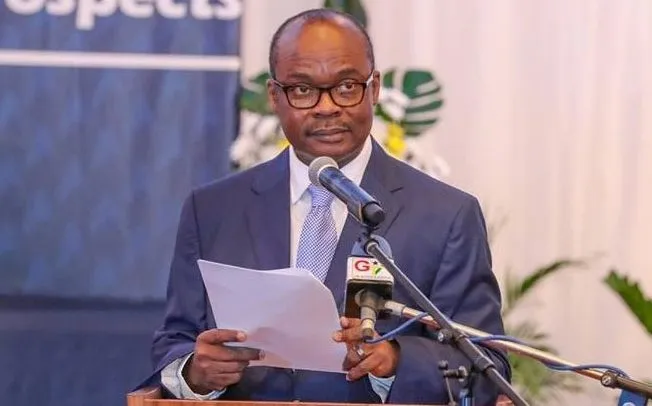Bank of Ghana Revises Year-End Inflation Target to 18%
Bank of Ghana Revises Year-End Inflation Target to 18%

- BoG has adjusted its year-end inflation target to 18%
- This revision comes despite earlier optimism
- The BoG also expressed confidence in its reserve accumulation
The Bank of Ghana (BoG) has adjusted its year-end inflation target to 18%, citing potential risks from geopolitical developments.
This marks a significant improvement from the 23.2% recorded at the end of 2023 and the 54.1% a year earlier.
The announcement was made by Governor Dr. Ernest Addison during a joint press briefing with the International Monetary Fund (IMF) and Ministry of Finance (MoF) following the successful completion of the IMF’s third review of Ghana’s Extended Credit Facility (ECF) program.
While the BoG initially anticipated risks on the higher end of its inflation projection, it now expects to slightly exceed its original estimate of 17%, reaching 18% by year-end.
This revision comes despite earlier optimism expressed after the September 2023 Monetary Policy Committee (MPC) meeting, which saw a two percent rate cut due to six months of consistent disinflation.
However, a surprise uptick in inflation to 21.5% in September 2024 prompted some to question the MPC’s decision. Governor Addison, however, defended the committee’s decision-making process, highlighting the significant improvements in economic indicators, inflation control, and reserve management.
The revised inflation target is still more optimistic than some private sector analysts had projected. DataBank, a leading financial services firm, suggested that inflation could reach as high as 23.5% by year-end, citing fuel price volatility and currency depreciation as key factors.
Despite the upward revision, the BoG maintains that its policy stance remains consistent. Governor Addison explained that the real policy rate remains relatively tight at 27%, considering the current inflation rate of 21.5%.
The BoG also expressed confidence in its reserve accumulation and anticipated inflows from development partners, including US$360 million from the IMF and an improved trade surplus. These factors are expected to help stabilize the currency and temper inflationary pressures during the holiday season.
While the BoG faces additional uncertainties due to an anticipated drop in the cedi’s value against major trading partners, it remains on course to achieve its medium-term target of 6-10% by end-2025, barring unanticipated shocks.





